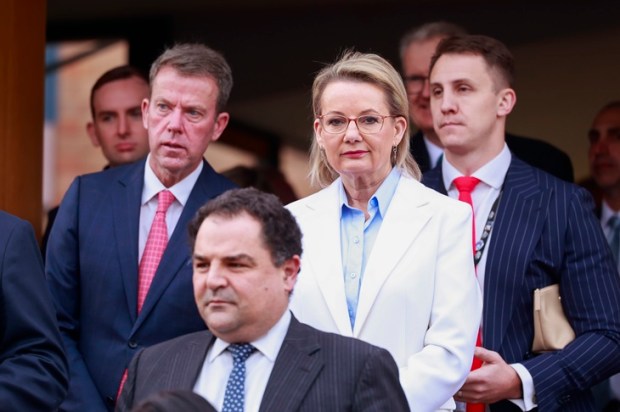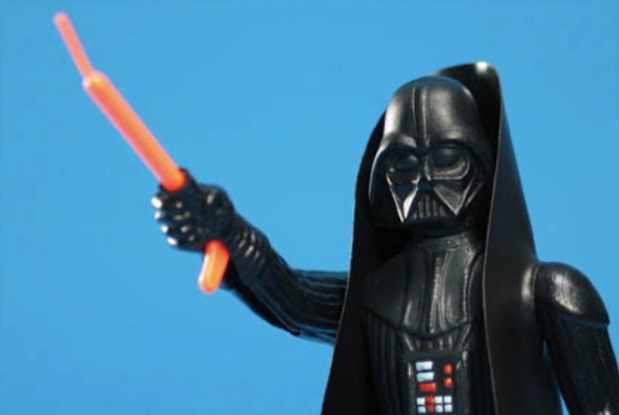If I told a Collingwood supporter in the AFL, or a Manly fan in the NRL, or a supporter of any team for that matter, that their devotion to their team was misplaced, I’d probably end up in the dirt seeing stars.
It’s the same for Star Wars fans who have known and loved the franchise since we were kids. I received my first R2 and Luke when I was four years old. I’ve been hooked ever since.
So, like a footy team, why is it so hard for some to understand the consternation among fans at poor performance by the current custodians of the beloved ‘Galaxy far, far away’?
Actors, writers, producers, and directors from Lucasfilm and its parent company Disney have blamed the dismal audience response to their latest offering in the Star Wars franchise, The Acolyte, on a range of things. However, the writing, storytelling, and production value of the show itself aren’t among them.
The viewer review meter on Rotten Tomatoes has The Acolyte sitting at just 14 per cent, an even lower score than the disastrous 1978 animated Star Wars Holiday Special. Within the lore of the Star Wars fandom, that’s an excruciatingly bad claim to fame.
According to some at Lucasfilm and Disney, the demographic that is most to blame for the failure of the television show (in which they had no hand in creating), is forty-something males who have a reprehensible penchant for loving good Star Wars.
President of Lucasfilm, Kathleen Kennedy, recently told media that women in the Star Wars franchise are so often attacked online more than men because of the fan base being so male-dominated.
Meanwhile, The Acolyte’s lead actress, Amandla Stenberg has blamed ‘intolerable racism’ that she’s endured since starring in the new Star Wars series, The Acolyte. While creator and director of The Acolyte, Leslye Headland, during an interview with the New York Times, made a direct connection between the poor viewer response to the show and racism; ‘But I want to be clear. Anyone who engages in bigotry, racism or hate speech … I don’t consider a fan,’ Headland told the Times.
“As a fan myself, I know how frustrating some ‘Star Wars’ storytelling in the past has been. I’ve felt it myself… I stand by my empathy for ‘Star Wars’ fans. But I want to be clear. Anyone who engages in bigotry, racism or hate speech… I don’t consider a fan.” — Leslye Headland pic.twitter.com/3K0tzrr6fk
— The Star Wars Underworld Network (@TheSWU) May 29, 2024
Others in the media have claimed the show was ‘review bombed’ by disgruntled, conservative fans – mostly forty-something males.
Yes, with the advent of the internet and social media, male sci-fi fans have been free to let loose their venom on women in sci-fi roles across time and space. Obviously, this has included actresses from the modern era, such as Rebecca Furgeson for her role in Dune and leading role in the successful Silo series; as well as actresses in previous roles like Sigourney Weaver in the Alien franchise; Linda Hamilton in Terminator; and Jennifer Lawrence as Katniss Everdeen.
Oh wait, that’s right. None of that ever happened…
So why all the hate on The Acolyte, which was incidentally also levelled at other recent Star Wars offerings like The Book of Boba Fett and to a lesser extent Kenobi, both shows recording less than favourable viewer review scores on Rotten Tomatoes?
Maybe, just maybe, it’s because the storylines of these shows just missed their mark? Perhaps it’s the frustratingly poor writing, including clunky expository dialogue – ‘As you know child – (but the audience doesn’t so we’ll explain it within this conversation even though we both know that you already know what I am about to tell you) – you were rescued from a forest fire that killed your entire village.’
Perhaps it’s the trite and ham-fisted attempt by some Star Wars writers to embed gender politics as a ‘soap box’ within a series at the expense of good storytelling? Maybe trying to use the sexual orientation of characters as a plot device isn’t resonating with a large segment of fans that have followed Star Wars since they were kids.
Or could it even be, galaxies forbid, that some influential executives at Lucasfilm and Disney are unhappy that the franchise they have inherited has such a strong fan base from a particular demographic; one with which they don’t personally identify?
Could it be that they have made it their personal mission to alienate this particular demographic in the hopes that they will all disappear, and that another demographic more aligned with their personal ideology will fill the void?
Just spit-balling.
One could be forgiven for reaching such a conclusion when it seems Lucasfilm and Disney’s current modus operandi is ‘we don’t want our traditional fans to be happy’.
In the words of fictional sports commentator Pepper Brooks in Dodgeball, ‘It’s a bold strategy, Cotton. Let’s see if it pays off for ’em.’
Equally white-anting Lucasfilm and others’ proclivity to blame fans for Star Wars franchise failures, is the success Lucasfilm and Disney have had with other Star Wars series, like The Mandalorian and Andor.
Both shows currently sit at 78 per cent and 87 per cent respectively on viewer reviews on the Rotten Tomatoes site. Thankfully for Disney, all those misogynistic, racist, forty-something men within the Star Wars fan base that gave both these shows a massive thumbs up, missed the fact that one of the contributors to and directors of The Mandalorian was Dallas Byrce Howard, a – wait for it – woman!
These awful male Star Wars fans also somehow forgot to spit their bile at the outstanding performances of Katie Sackhoff as Bo Katan in The Mandalorian, Genevieve O’Reilly as Mon Mothma in Rogue One and Andor, and veteran actress Fiona Shaw as Maarva Andor in Andor.
It is truly bizarre that Lucasfilm and Disney executives, directors, and writers cannot seem to grasp that blaming fans for not liking their product is a dysfunctional way to run any business.
Or as popular YouTube media commentator, Valliant Renegade put it, ‘Don’t blame us. We just want good Star Wars.’
It could be why in Q2 2023, Disney’s profitability bit the dust, making a loss of $587 million. There has been a marked improvement in the fortunes of Disney’s streaming services this year with a 2024 Q2 profit of $47 million (although when ESPN and HULU are added to that figure it becomes a loss of $18 million).
While some on the board of the Mouse House claim this as proof that their strategy around the Star Wars franchise is working, anyone with an ounce of intuition would more likely put this down to the dramatic rise in popularity of Disney’s quiet 2019 purchase. A little-known cartoon dog from Australia, and the simple, well-written exploits of her family.
The rise and rise of Bluey from a short cartoon on ABC Kids Australia to a world-conquering phenomenon on the Disney platform, adored by adults and kids alike, is reflected in the viewer reviews by fans on Rotten Tomatoes – season 1, 78 per cent; season 2, 72 per cent; and season three; 77 per cent.
But what would fans know?
According to Lucasfilm and Disney, not much.
Brad Emery is a Freelance Writer and long-suffering Star Wars fan

























